How the urinary system works
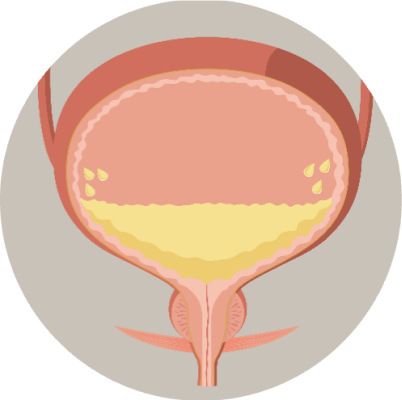
The brain and the bladder control urinary function. The bladder fills from the kidney and stores urine until it is ready to be emptied.
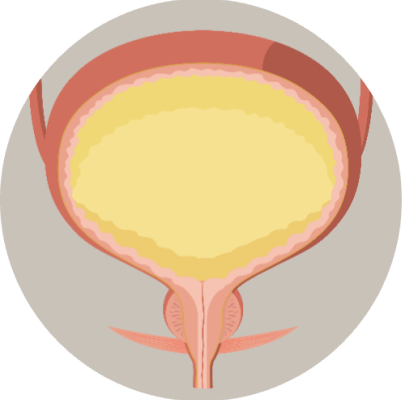
The bladder neck and sphincter muscles are closed around the urethra (tube that carries urine from the body). This prevents leakage.
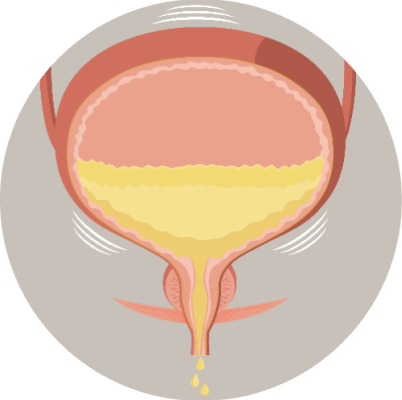
Upon urination, the brain sends a signal to the bladder and bladder muscles contract, forcing urine out through the urethra and the sphincters to open.
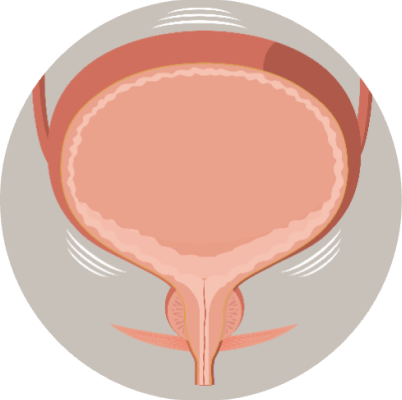
The empty bladder relaxes, stops contracting and the urinary sphincter closes.
What is urinary incontinence?1
Urinary incontinence is the leaking of urine you can’t control.
It’s the unintentional loss of urine, when the muscles that hold the bladder neck and urethra closed are not strong enough to retain urine in the bladder. Incontinence can occur when the sphincter is too weak, bladder muscles contract too strongly or when the bladder is not emptied regularly or completely.
What causes urinary incontinence?
The most common cause of stress urinary incontinence (SUI) is prostate cancer treatments.2 During prostate removal or radiation, the nerve bundles, bladder muscles or blood vessels may be damaged. This damage can cause a weakening of the bladder muscles and less support around of the urethra, causing incontinence.
Normal prostate
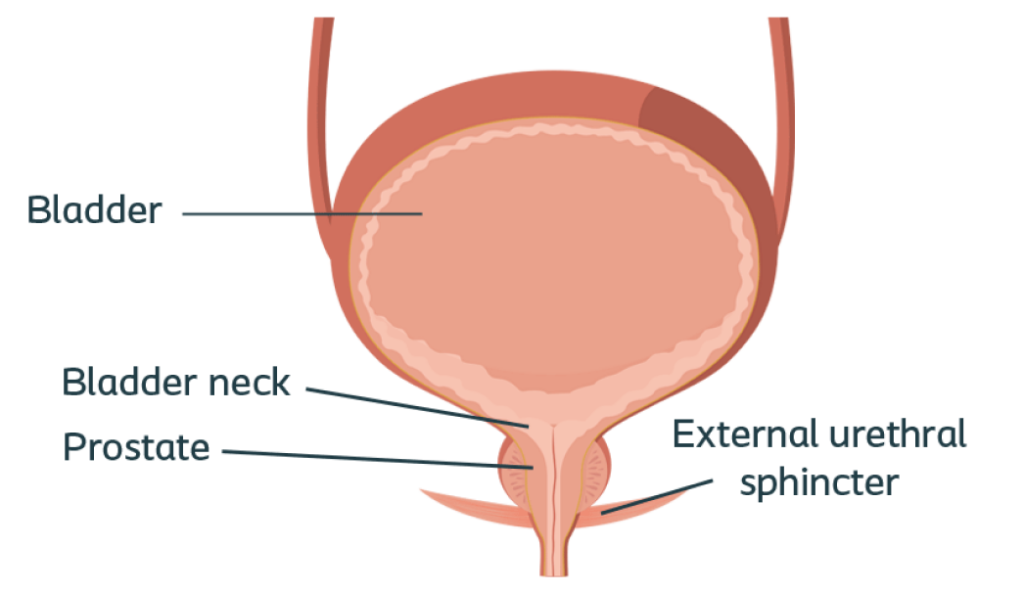
External urethral sphincter injury
post-prostatectomy
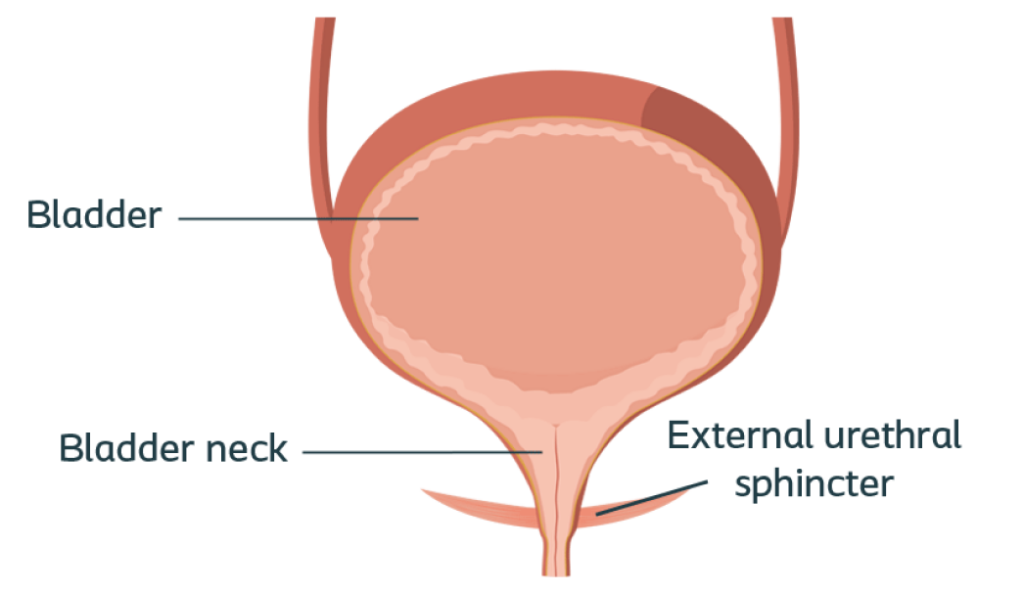
Are you experiencing signs of incontinence?
If you answer yes to any of the below questions, you may be showing signs of incontinence. Speaking with a physician who specializes in incontinence can help in the diagnosis of your type of incontinence and finding the most effective treatment option for you.
1
Do you leak urine unexpectedly? If yes, is it a few drops, wet undergarments or wet clothing?
2
Do you leak urine when you cough, sneeze, laugh, lift objects/exercise, or have other pressure on your bladder?
3
Do you leak urine continuously during the day?
4
Do you leak urine while sleeping?
5
Has urine leakage caused you to change your lifestyle?
References
1 Urinary Incontinence. Urology Care Foundation. https://www.urologyhealth.org/urology-a-z/u/urinary-incontinence. Accessed December 2023.
2 Stress Incontinence in Men. National Association for Continence. https://nafc.org/male-stress-urinary-incontinence/. Accessed October 2023.
PM-34276
